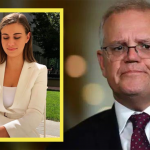 UPDATED: 1 Feb 2022. Noticed a lot of talk about political donations this week? Around this time every year the Australian Electoral Commission’s (AEC) publishes its annual report on political donations for the previous financial year – you can search the 20/21 donations data here. The Centre for Public Integrity also ran an analysis of 20 years of political donations, revealing that over $1 billion worth are from ‘secret’ donors. The law does not require parties to reveal who those donors are. It is again prompting calls to change Australia’s political donation laws – which many say are way too lenient.
UPDATED: 1 Feb 2022. Noticed a lot of talk about political donations this week? Around this time every year the Australian Electoral Commission’s (AEC) publishes its annual report on political donations for the previous financial year – you can search the 20/21 donations data here. The Centre for Public Integrity also ran an analysis of 20 years of political donations, revealing that over $1 billion worth are from ‘secret’ donors. The law does not require parties to reveal who those donors are. It is again prompting calls to change Australia’s political donation laws – which many say are way too lenient.
The Australian Greens are leading the charge, with two proposals to make donations more transparent and reduce the political influence of the rich and powerful. To catch you up on this evolving story, read on for the current laws and the Greens’ proposed changes.
What are the rules around political donations?
Every year the AEC requires all political parties to submit a report of donations received in the previous financial year, as part of their full financial reporting. The report must be submitted by October, and has to contain the following:
- Must include all financial gifts received, non-cash donations or ‘gifts-in-kind’
- For donations or gifts over $14,000 this must include the full name of the donator
- A sum of all donations or gifts from a single donor only if the amounts are greater than $14,000 (i.e.: if Company X makes three donations of $15,000, $18,000 and $10,000, their reported total sum would only be $33,000)
- Donations of more than $14,000 made by a trust must also name who the donation was made on behalf of
Political parties cannot accept a donation and gifts from a foreign donors worth more than $100. In fact, for all donations between $1000 and $14,000, the party must provide written confirmation that the money is not from a foreign donor.
Ultimately, if the donation is less than $14,000 the party does not have to say who it was from. According to the latest AEC report, more than $1 billion in political donations from 1999 to 2019 are completely secret.
Technology has made instant reporting of political donations so easy.
— Bruce Robertson (@barobertson111) February 2, 2021
The only issue stopping it is corruption
How do the Australian Greens want to change the laws?
The Greens are proposing three separate reforms to the laws on Australia’s political donations.
The ‘Banning Dirty Donations’ Bill wants to:
- Prohibit political donations from property developers, the tobacco industry, the banking industry, liquor and gambling businesses, pharmaceutical companies and the mining industry
- Put a cap on all donations of $3000 per election term
- Expand the definition of ‘gift’ to include party subscription and membership fees
The Greens also plan to propose the ‘Enhancing Transparency’ Bill to:
- Require parties to name donors for amounts of $1000 or more
- Require parties to report the total sum of donations from a single donor (e.g.: in the case of our fictional Company X, they would report the full amount of $43,000)
Related Posts
Have we attempted to change these laws before?
Politicians have tried – and failed – to have Australia’s political donation laws changed before. Jacqui Lambie presented a Bill in 2020 that was voted down. Centre Alliance MP Rebecca Sharkie’s Bill proposing real-time disclosure was rejected in 2019 – the Greens did not support this as it did not lower the threshold for disclosures.
Labor Senator Don Farrell also introduced two transparency Bills in 2019, but these have not been progressed more than one year later.
The Greens will need Labor’s support on the two new Bills in order to finally make this reform happen… whether they come to the table remains to be seen.
Do you find the Zee Feed news explainers on politics helpful? You can supporting our work by buying our book How to Win Every Argument. Grab a copy for less than $10!







